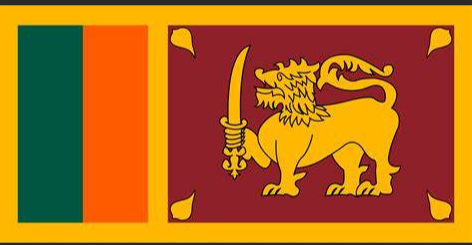Sri Lanka is preparing for the exit of President Gotabaya Rajapaksa, who is set to step down early after failing to address an unprecedented economic crisis leading to fuel, gas, medicine, and food shortages.
Rajapaksa is scheduled to resign from his post on Wednesday.
Meanwhile protesters continue to occupy the president’s official residence and his office and the prime minister’s official residence after storming the buildings on Saturday.
Lawmakers in the capital are discussing the election of a new president, to be decided in a vote on July 20.
They have also planned celebrations to mark the departure of Rajapaksa.
It may be the end of an era for the island nation.
President Rajapaksa’s elder brother Mahinda Rajapaksa was the country’s prime minister until he resigned in May, while their younger brother Basil Rajapaksa quit on June 9.
Basil Rajapaksa, an influential former Cabinet minister, was prevented from leaving the country on Tuesday, after fellow passengers at the airport intervened.
Basil Rajapaksa arrived at Colombo’s international airport on Tuesday morning, but was prevented from boarding his flight as passengers protested.
After the protests, immigration officials on duty said they were halting their work at the VIP lounge.
“We have also decided to keep away from duties at the VIP lounge as more politicians and their families will try to leave the country,” president of the Immigration and Emigration Officers’ Association, K A A S Kanugala, told dpa.
He also said there had been reports that President Gotabaya Rajapaksa was trying to leave the country from the same airport, but added that his team had no knowledge of such attempt.
Meanwhile, protesters and trade unions have threatened to keep protesting until their demand for Prime Minister Ranil Wickremesinghe to step down is met.
“We will call for strikes and protests campaigns if the prime minister too does not resign,” said opposition activist Wasantha Samarasinghe.
The premier, whose private residence was burned down last Saturday, has expressed his willingness to step down, but has not given a specific date.
However, he is now likely to stand as a candidate for the post of president in the July 20 elections, as he is supported by some of the members of the ruling party in parliament.
Wickremesinghe was chosen by Rajapaksa to become prime minister when the previous holder of the post resigned on May 9, so he is seen as an ally of the outgoing president.
Wickremesinghe is the sole member from his United National Party in the 225-seat parliament, but has the support of Rajapaksa’s Sri Lanka People’s Party.
Protests against the president and the government have been escalating for the past three months due to an unprecedented economic crisis which has sparked fuel, medicine and food shortages.
Sri Lanka has sought support from the International Monetary Fund (IMF) for a bailout package, but the IMF is demanding political stability as a prerequisite.
The country received the first stocks of domestic gas supplies in a month over the weekend.
Meanwhile a shipment of fertiliser arrived on Monday, after shortages for more than three months.
However, long queues formed again outside fuel station, with only limited supplies available from the Indian Oil Company, while government-controlled filling stations remain closed for two weeks.
